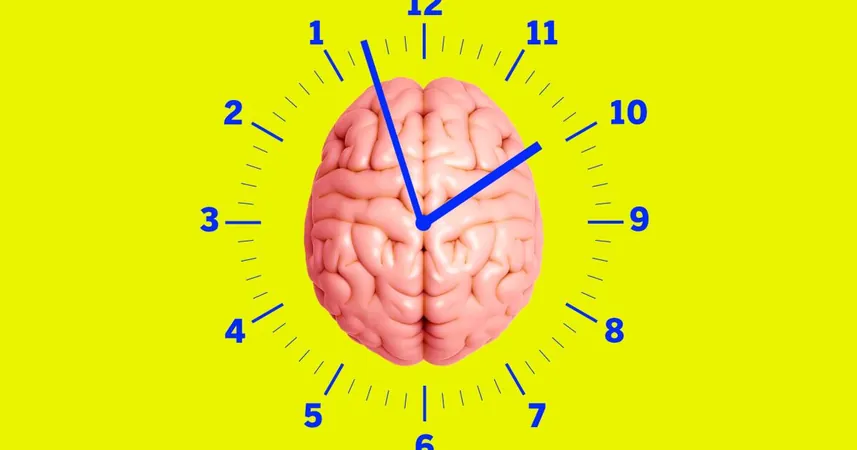
Unlocking the Mystery: How a Rare Genetic Mutation Allows Some to Thrive on Just 4 Hours of Sleep!
2025-05-08
Author: Ting
Meet the Genetic Super-Sleepers!
Imagine feeling refreshed and ready to conquer the day after just four hours of sleep! Sounds impossible, right? Well, for a lucky few, it’s a reality thanks to a rare genetic mutation. Scientists have identified a specific mutation called SIK3-N783Y that enables some individuals to function optimally on just a fraction of the rest most of us need.
The Groundbreaking Discovery!
In a recent study published in the journal PNAS, researchers conducted experiments on genetically modified mice carrying the SIK3-N783Y mutation. Their findings revealed that these mice also enjoyed less sleep than their counterparts, further fueling our understanding of this enigmatic trait. The researchers aim to unravel the secrets of natural short sleepers in hopes of creating better treatments for sleep disorders.
How Do They Do It?
According to Ying-Hui Fu, a knowledgeable neuroscientist at the University of California, San Francisco, the bodies of these super-sleepers continue to operate at a higher level even while they sleep. Detoxification and damage recovery processes remain in peak condition, allowing them to thrive on less shut-eye.
The Science of Sleep Patterns!
Most adults need between seven to nine hours of sleep to feel their best. However, those with the natural short sleep trait seem to operate just fine on around four to six hours. Interestingly, sleeping beyond their usual hours can leave them feeling worse!
Previous Research and the Mutation's Impact!
Previous studies have spotlighted four genes associated with short sleep, as well as several mutations within them. The new discovery of the Sik3 gene adds to this growing list of genetic influencers. In the lab, mice with this mutation slept approximately 31 minutes less than those without, and even more dramatically—54 minutes less—after being deprived of sleep, showcasing the mutation's profound impact.
What’s Next for Research?
Despite these exciting findings, there's still much to learn about the mysteries of these natural short sleepers. The newly identified SIK3 mutation not only opens doors for scientific exploration but also presents a potential avenue for improving sleep efficiency across the board. Could this research ultimately lead to revolutionary treatments for insomnia? Only time will tell!


 Brasil (PT)
Brasil (PT)
 Canada (EN)
Canada (EN)
 Chile (ES)
Chile (ES)
 Česko (CS)
Česko (CS)
 대한민국 (KO)
대한민국 (KO)
 España (ES)
España (ES)
 France (FR)
France (FR)
 Hong Kong (EN)
Hong Kong (EN)
 Italia (IT)
Italia (IT)
 日本 (JA)
日本 (JA)
 Magyarország (HU)
Magyarország (HU)
 Norge (NO)
Norge (NO)
 Polska (PL)
Polska (PL)
 Schweiz (DE)
Schweiz (DE)
 Singapore (EN)
Singapore (EN)
 Sverige (SV)
Sverige (SV)
 Suomi (FI)
Suomi (FI)
 Türkiye (TR)
Türkiye (TR)
 الإمارات العربية المتحدة (AR)
الإمارات العربية المتحدة (AR)